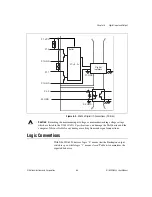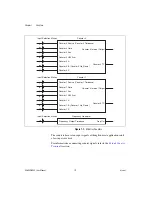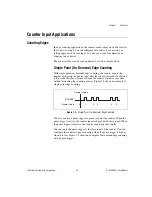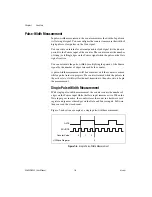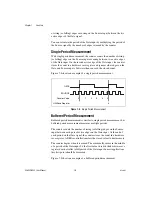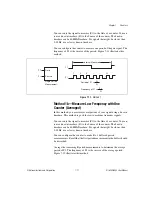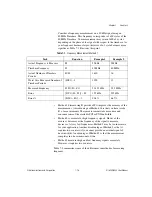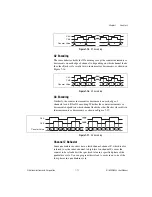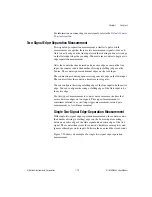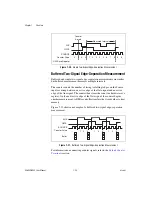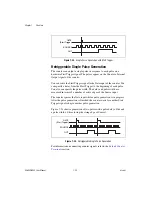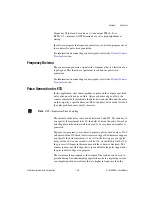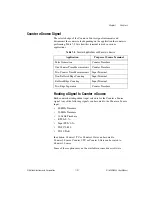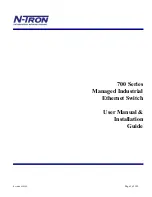
Chapter 7
Counters
7-12
ni.com
Figure 7-12.
Method 1b
Method 2—Measure High Frequency with Two
Counters
In this method, you measure one pulse of a known width using your signal
and derive the frequency of your signal from the result. This method is good
for high frequency signals.
In this method, you route a pulse of known duration (T) to the Gate of a
counter. You can generate the pulse using a second counter. You also can
generate the pulse externally and connect it to a PFI or RTSI terminal. You
only need to use one counter if you generate the pulse externally.
Route the signal to measure (F1) to the Source of the counter. Configure the
counter for a single pulse-width measurement. Suppose you measure the
width of pulse T to be
N
periods of F1. Then the frequency of F1 is
N
/T.
Figure 7-13 illustrates this method. Another option would be to measure
the width of a known period instead of a known pulse.
F1
Ft
F1
Intervals Measured
Gate
Source
Buffered Period
Measurement
Average Period of F1 =
N
1
+
N
2
+ …
N
K
K
Frequency of F1 =
N
1
+
N
2
+ …
N
K
K
×
Ft
Ft
T
1
T
2
…
T
K
1
Ft
×
1
2
...
N
1
1...
...
N
2
… 1...
...
N
K


